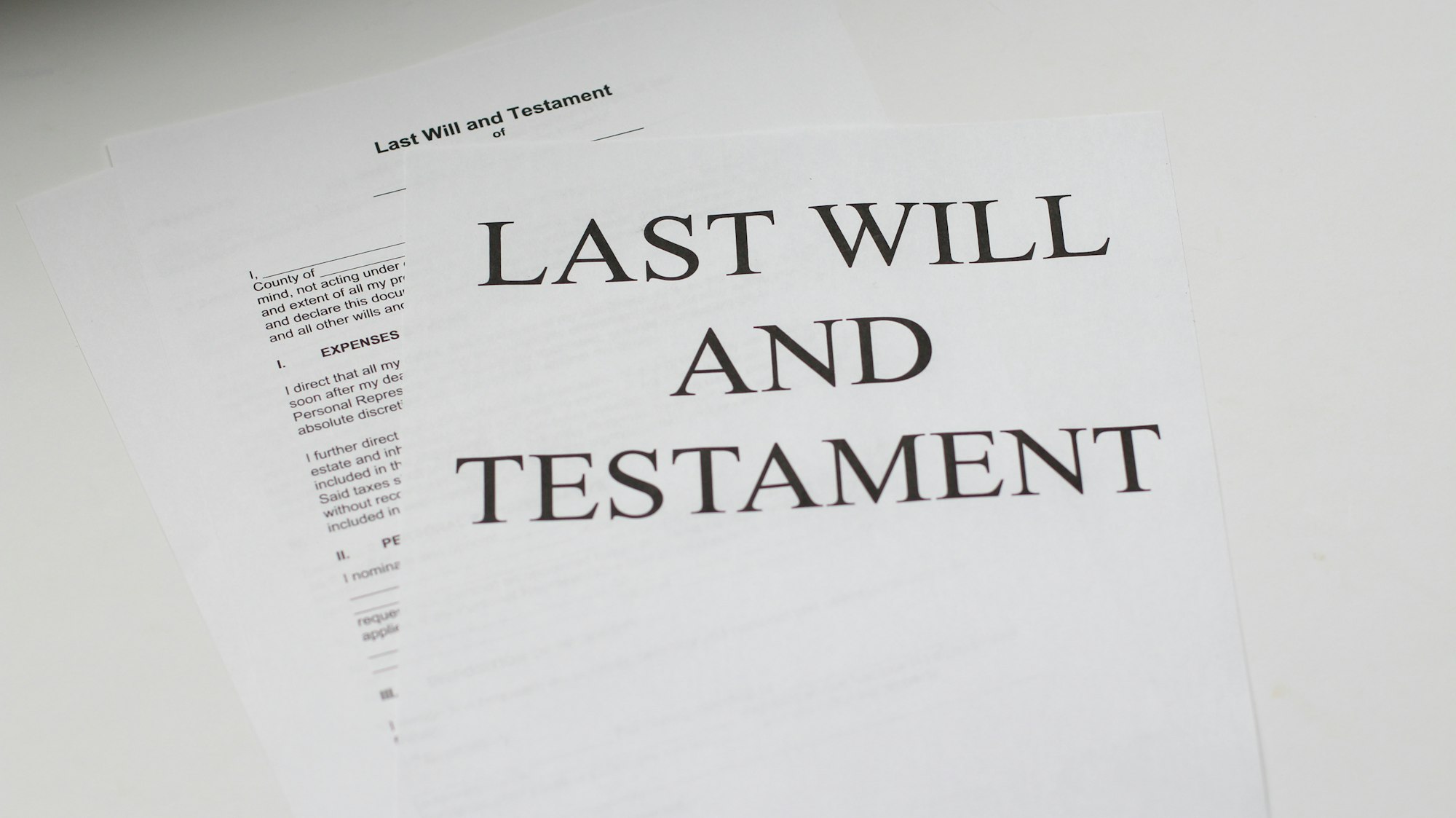Can a Power of Attorney Override a Living Will?
A Power of Attorney (POA) and a Living Will are both vital documents, but they serve different purposes. Can a POA override a Living Will? Discover the key differences, when a POA may have authority, and how to ensure your healthcare wishes are respected in critical situations.

Introduction to Powers of Attorney and Living Wills
A power of attorney (POA) and a living will are both legal documents that can help protect you and your loved ones during times of life-altering events, such as illness, disability, or even death. Knowing what these documents are and how they work is important for anyone who wishes to have autonomy over their affairs and is looking to make sure their wishes are respected.
In this guide, we will discuss what a power of attorney, including a durable power of attorney for health care, and a living will are, how they might interact, and important considerations to keep in mind when creating either one.
Understanding Advance Directives
Advance directives are crucial legal documents that allow individuals to outline their medical care preferences in advance, ensuring their wishes are respected if they become unable to communicate or make decisions for themselves. There are two primary types of advance directives: Living Wills and Health Care Power of Attorney.
A Living Will is a document that specifies an individual’s desires regarding medical treatment, particularly life-sustaining treatment, in the event they become terminally ill or incapacitated. This document can include instructions on the use of life support, resuscitation, and other critical medical interventions.
On the other hand, a Health Care Power of Attorney appoints a trusted person to make medical decisions on behalf of the individual if they are unable to do so. This appointed agent, or proxy, is empowered to make decisions that align with the individual’s wishes as outlined in their Living Will or other advance directives.
Having these documents in place ensures that medical care decisions are made according to the individual’s preferences, providing peace of mind and clarity for both the individual and their loved ones.
What is a Power of Attorney?
A power of attorney is a legal document that allows you to give someone else the power to manage your affairs. It can be used for a variety of purposes, such as handling financial, legal, and medical decisions on your behalf. The person you appoint is known as your “attorney-in-fact” or “agent.”
The power of attorney generally applies in situations where you may lack the capacity to make decisions due to illness, disability, or age. In such cases, the document is necessary to legally authorize someone else to act on your behalf.
Typically, it is up to you to decide who you want to appoint as your attorney-in-fact. They must have the required legal capacity and be willing to agree to take on the role. The power of attorney may be limited to specific actions or broad in scope.
Understanding Living Wills
A living will is a legal document that states an individual’s wishes regarding their medical care and the treatment they should receive if they become unable to make decisions for themselves. It is important to understand the purpose and elements of a living will so that you can make informed decisions about your own health and wellbeing.
A health care proxy is another type of advance directive that designates an individual to make medical decisions on behalf of someone who is incapacitated.
The purpose of a living will is to give an individual the ability to make decisions about their healthcare in advance. This can provide peace of mind and make it easier for family or healthcare providers to follow the patient’s wishes when making end-of-life decisions.
There are several key elements of a living will:
- Instructions on the types of treatments that should or should not be provided
- Instructions on pain management and other comfort measures
- Instructions on the use of technology or life-support systems
- The appointment of a healthcare agent, if desired
- Information on funeral or burial arrangements
A living will also may outline any other desires or instructions that the individual would like to express regarding their medical care. It is important to note that a living will is not a substitute for having a valid power of attorney in place.
Understanding How the Two Work
A power of attorney (POA) and a living will are separate yet related documents. In the event an individual is unable to make decisions regarding their estate and health due to medical incapacity, a POA and living will can be used to ensure their wishes are honored.
A POA is a legal document that grants another person the authority to act and make decisions on a person’s behalf. The POA is usually appointed by the individual in question while they are still mentally competent, and it grants broad power over day-to-day decisions such as medical appointments and financial transactions.
A living will, on the other hand, is a document that outlines an individual’s wishes for end-of-life medical treatment and care. It includes instructions regarding resuscitation, medical treatments, organ donations, and hospice care. A living will only applies once an individual is medically incapacitated and unable to express their own wishes.
The POA and living will are complementary documents. When an individual executes both documents, it enables them to appoint someone to honor their wishes regarding life support and medical decisions even when they are no longer mentally able to do so themselves. A medical power of attorney specifically empowers an agent to make real-time healthcare decisions based on the individual's best interests, contrasting with the specific instructions laid out in a living will.
Why a Power of Attorney Might Override a Living Will in Medical Decisions
There might be circumstances where a power of attorney is required to override the terms of a living will. One of the primary reasons for this is if a person is incapacitated and no longer able to make decisions, they may need someone to step in and make decisions for them in their best interests. A power of attorney document allows an individual to appoint someone to do this on their behalf. Additionally, a healthcare proxy can also be appointed to make medical decisions, and this role can sometimes lead to conflicts with the instructions in a living will.
In some cases a living will may not provide enough guidance or information when making decisions about a person’s health care or financial needs. A power of attorney can provide more detailed instructions which will be used as a guide for the appointed person to make any necessary decisions.
Another potential reason for a power of attorney to override a living will is if the terms of the living will are no longer appropriate. This could be because laws have changed, or circumstances could have changed such that a different decision needs to be made. In this situation, the power of attorney holder would be able to exercise their discretion to make changes as needed.
Finally, if there are conflicts between the directions of a power of attorney and those of a living will, the power of attorney will generally take precedence. This is because it is a legally binding document, but the living will is not.
Health Care Power of Attorney
A Health Care Power of Attorney is a vital legal document that allows an individual to designate an agent or proxy to make medical decisions on their behalf if they become incapacitated. This agent is granted the authority to make a wide range of medical decisions, including those related to life-sustaining treatment, based on the individual’s expressed wishes.
The agent can access the individual’s medical records, communicate with healthcare providers, and make informed decisions about medical treatment. It is crucial that the agent’s decisions reflect the individual’s preferences as outlined in their Living Will or other advance directives.
By appointing a Health Care Power of Attorney, individuals ensure that their medical care is managed according to their wishes, even when they are unable to communicate those wishes themselves. This legal document provides a clear directive for healthcare providers and helps avoid potential conflicts among family members.
Discuss Laws that Govern Powers of Attorney and Living Wills
When establishing powers of attorney or a living will, it is important to consider any relevant laws in place that govern these documents. An individual’s state may have specific laws or statutes related to these topics, so researching the local jurisdiction is essential.
Powers of attorney are generally subject to state law, which can help define the authority given to an agent. Typically, an individual will need to meet certain age requirements, be of sound mind, and be competent in order for a power of attorney to be legally enforceable. Additionally, laws may specify certain types of powers of attorney, such as medical and durable power, that allow for more control.
Living wills also differ from state to state, depending on the type of medical situations that may be addressed. The statutes may apply to healthcare directives, organ donation wishes, guardianship provisions, and other ideas related to end-of-life decisions. Ultimately, understanding the relevant laws and regulations in a particular geographic area is important to ensure that all matters are properly handled.
Honoring Advance Directives
Medical professionals are legally required to honor advance directives, including Living Wills and Health Care Power of Attorney. When an individual has a Living Will, healthcare providers must follow the instructions specified in the document, particularly regarding life-sustaining treatment and other critical medical decisions.
If an individual has appointed a Health Care Power of Attorney, medical professionals must consult with the designated agent and adhere to their decisions regarding medical treatment. While family members and loved ones can be involved in the decision-making process, the advance directive takes precedence, ensuring that the individual’s wishes are respected.
This legal obligation ensures that medical care aligns with the individual’s preferences, providing clarity and direction for both healthcare providers and family members during challenging times.
Should You Consult a Professional?
Deciding whether or not to consult a professional when setting up power of attorney and living wills is an important decision. It is a wise move for many people, given the complexities of these documents. However, there are pros and cons to be considered.
Seeking the help of a professional can give you peace of mind. They will have ample experience in drafting these documents and can provide advice on making sure your wishes are met in all situations. Furthermore, they will be able to explain the legal aspects and how the documents will be enforced. Additionally, they can ensure that your documents meet all the requirements for state registration and are valid in court.
The biggest disadvantage of consulting a professional is cost. Depending on the lawyer's rate, it can be expensive. Also, they may not be familiar with your individual situation or any unique circumstances that may arise.
Ultimately, every person's situation is different and care must be taken when considering the advice of a professional. It's important to weigh the pros and cons and decide which route is best for you.
Benefits and Risks of Setting up Powers of Attorney and Living Wills
For many, setting up a power of attorney and living will are essential components of their estate and health care planning. Both documents provide an effective way to ensure that decisions are made in accordance with one's wishes for medical care and asset management. However, it is important to understand the risks and benefits associated with these documents before one creates them.
Benefits: Creating a power of attorney and living will can make it easier for you or your loved ones to manage your health and finances if you are no longer able to do so yourself. This type of planning can give you peace of mind knowing that your wishes will be respected should something happen to you. It also allows you to designate the person who is best equipped to carry out your wishes in case of emergency or illness.
Risks: Despite the positive aspects of creating a power of attorney and living will, there are some potential risks to consider. For instance, if you appoint someone to act on your behalf, it is possible that they may not faithfully carry out your wishes. Also, if the document is not properly drafted or executed, it may not be legally binding. Therefore, it is important to consult with a lawyer to ensure that your wishes will be respected.
Creating a power of attorney and living will is the best way to ensure that your wishes are followed when it comes to health care and financial decisions. Having these documents in place can provide peace of mind for both you and your loved ones. However, setting up a power of attorney and living will can be a complex process. With this guide, you will find step-by-step instructions and tips to help simplify the process.
Importance of Having Both a Living Will and a Power of Attorney
Having both a Living Will and a Power of Attorney is essential for comprehensive protection and ensuring that an individual’s medical wishes are respected. A Living Will provides specific instructions regarding medical treatment, while a Power of Attorney designates a trusted person to make decisions on the individual’s behalf if they become incapacitated.
Together, these documents offer a robust framework for managing medical care. The Living Will outlines the individual’s preferences, and the Power of Attorney ensures that those preferences are implemented by an appointed agent. This dual approach helps avoid conflicts and ensures that medical professionals and family members are fully aware of the individual’s wishes.
By having both documents in place, individuals can have peace of mind knowing that their medical treatment will be handled according to their desires, even in situations where they cannot communicate their wishes themselves.
Changing or Revoking Advance Directives
Advance directives are not set in stone and can be changed or revoked at any time, provided the individual is of sound mind and capable of making informed decisions. If an individual wishes to update or cancel their advance directive, they must do so in writing and inform their appointed agent, healthcare providers, and family members of the changes.
Regularly reviewing and updating advance directives is crucial to ensure they reflect the individual’s current wishes and circumstances. Life changes, such as new medical diagnoses or changes in personal relationships, may necessitate updates to these important documents.
By keeping advance directives current, individuals can ensure that their medical care preferences are always accurately represented, providing clarity and direction for their loved ones and healthcare providers.
Step 1: Find a Lawyer
The first step in creating a power of attorney and living will is to find a lawyer who has experience with estate planning. Make sure that the lawyer accepts clients from your state and is familiar with the laws related to powers of attorney and living wills. It is a good idea to ask for referrals from family and friends so that you can find someone you trust.
Step 2: Gather the Necessary Documents
The next step in creating a power of attorney and living will is to gather the necessary documents. This includes any financial or healthcare records that you want to include in your documents, as well as any documents related to your estate plan. It is important to make sure that all of the documents are up to date and accurate before you proceed.
Step 3: Create the Legal Document
Once you have collected the necessary information, you will need to create the document. This is where an experienced lawyer can be helpful. They will be able to explain the process and help craft the best document for your needs. It is important to make sure that you understand all of the legal terms in the document and know the implications of each section.
Step 4: Sign the Document
Once the document has been created, it must be signed by both the principal (the person granting the power of attorney) and the agent (the person receiving the power of attorney). Both parties must sign the document in front of a notary. The document should also be witnessed by two additional people.
Step 5: File the Document
Once the document has been signed, you must file it with the appropriate government office. This varies by state, so make sure to check with your local laws to determine where you need to file. You should also contact the insurance companies and other entities that need to be informed about your power of attorney and living will.
Creating a power of attorney and living will is a complex process. But with the right guidance, you can ensure that your wishes are followed and that your loved ones are taken care of.
Consequences of Ignoring Powers of Attorney and Living Wills
Ignoring the need to set up a power of attorney or living will can have serious consequences. Without these documents, an individual's wishes may not be respected in instances such as medical decisions or handling their estate.
In some cases, if a family member or appointed person does not have a power of attorney, they may not have access to an individual's bank accounts or have any say when it comes to making health care decisions. In addition, without a living will, a person's instructions for their end of life care may not be known or respected. This could be particularly complicated if an individual's wishes differ from those of their loved ones.
Another issue is that without a power of attorney or living will, decision-making can become extremely expensive. This is because a court could be required to step in and make decisions, such as granting guardianship or appointing someone to manage an individual's affairs. In addition, the costs of a lengthy legal process can quickly add up.
Finally, if an individual passes away without a will, there are no instructions as to how they want their estate to be handled. This means that the courts will have the final say in how assets and property will be divided.
Conclusion
Powers of attorney and living wills are important documents that can help you protect your wishes and ensure your health and estate decisions are honored. It is important to understand how these two documents interact, should one override the other, and the legal considerations that are in place to protect you and your decisions.
We hope this guide has helped you gain a better understanding of powers of attorney and living wills and how they can provide peace of mind when it comes to planning for the future. But it is also important to remember that these documents should be updated regularly and revisited to see if they are still appropriate for your individual situation.
If you have any questions or need additional guidance on how to set up these documents, it's best to consult a legal professional. An experienced attorney can help you understand all the laws and regulations surrounding the creation of a power of attorney and a living will, and ensure that your wishes will be respected.
You might also like this article:












